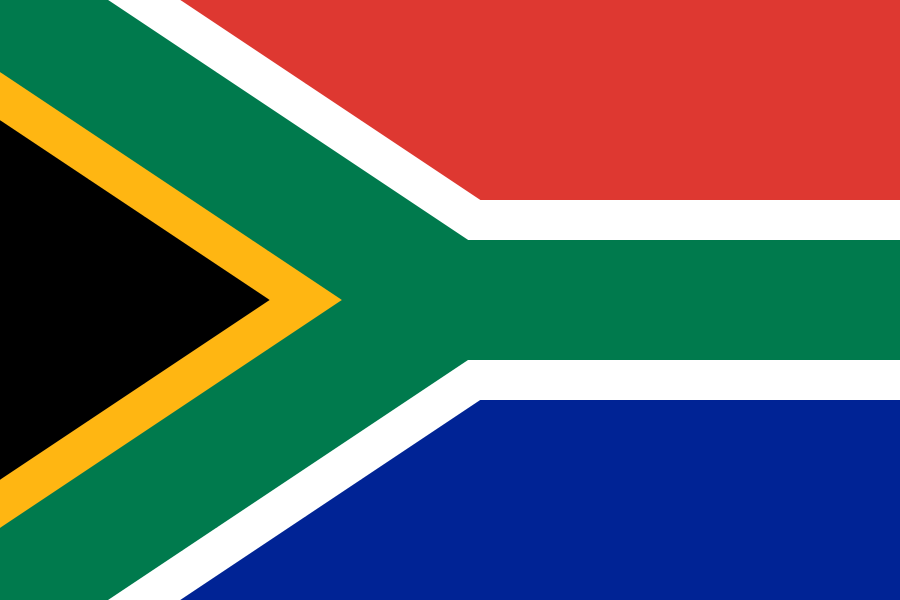Dutch traders landed at the southern tip of modern day South Africa in 1652 and established a stopover point on the spice route between the Netherlands and the Far East, founding the city of Cape Town. After the British seized the Cape of Good Hope area in 1806, many of the Dutch settlers (Afrikaners, called "Boers" (farmers) by the British) trekked north to found their own republics in lands taken from the indigenous black inhabitants. The discovery of diamonds (1867) and gold (1886) spurred wealth and immigration and intensified the subjugation of the native inhabitants. The Afrikaners resisted British encroachments but were defeated in the Second South African War (1899-1902); however, the British and the Afrikaners, ruled together beginning in 1910 under the Union of South Africa, which became a republic in 1961 after a whites-only referendum. In 1948, the Afrikaner-dominated National Party was voted into power and instituted a policy of apartheid - the separate development of the races - which favored the white minority at the expense of the black majority. The African National Congress (ANC) led the opposition to apartheid and many top ANC leaders, such as Nelson MANDELA, spent decades in South Africa's prisons. Internal protests and insurgency, as well as boycotts by some Western nations and institutions, led to the regime's eventual willingness to negotiate a peaceful transition to majority rule. The first multi-racial elections in 1994 following the end of apartheid ushered in majority rule under an ANC-led government. South Africa has since struggled to address apartheid-era imbalances in decent housing, education, and health care. ANC infighting came to a head in 2008 when President Thabo MBEKI was recalled by Parliament, and Deputy President Kgalema MOTLANTHE, succeeded him as interim president. Jacob ZUMA became president after the ANC won general elections in 2009; he was reelected in 2014.
South Africa is a parliamentary republic.
Source: CIA World Factbook
Members:
Resources
Displaying 51 - 55 of 94Sectional Titles Amendment Act, 2010 (No. 11 of 2010).
This Act amends the Sectional Titles Act, 1986 in provisions concerning, among other things: the registration of a sectional mortgage bond; certification of registered sectional title or real right; and extension of schemes by notarial deed.
Amends: Sectional Titles Act, 1986. (1999)
Rural Development and Land Reform General Amendment Act, 2011 (No. 4 of 2011).
This Act amends existing legislation by giving new definitions of "Minister" and other public bodies and officers and by updating certain other provisions.
Deeds Registries (Amendment) Act 2010 (No. 12 of 2010).
This Act amends the Deeds Registries Act 1937 in provisions concerning, among other things: appointment of the Chief Registrar; the duties of the Registrar; and the issuing of a certificate of title in respect of a fraction of an undivided share in land.
Amends: Deeds Registries Act. (2000)
Local Government: Municipal Systems Amendment Act, 2011 (No. 7 of 2011).
This Act makes amendments to the Local Government: Municipal Systems Act, 2000 in respect of a wide variety of matters including municipal managers and acting municipal managers and other matters regarding the administration of municipalities.
Amends: Local Government: Municipal Systems Act, 2000. (2004)
Deeds Registries Amendment Regulations, 2015 (No. R. 547 of 2015).
These Regulations amend the Regulations in terms of the Deeds Registries Act in: regulation 28 (particulars of a deed wherein land is described), regulation 39 (authority for the performance of specified acts), regulation 44A (correctness of facts in preparing certificates), regulation 45 (lodgement and execution of deeds), regulation 52 (requirements of registration in case of in the partition of land, an undivided share in such land is registered in the name of a deceased person, or of his or her estate, or of his or her surviving spouse), regulation 68 (copy of a deed in case of loss or


